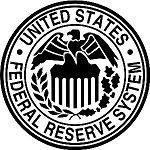Global economic activity seems to be picking up as the International Monetary Fund (IMF) estimates 3.6% and 3.7% growth in 2017 and 2018, respectively, compared with 3.2% in 2016.
The IMF raised its forecasts from the estimates released in April 2017 with easing global macro tensions and accelerating growth globally. With global economic recovery, consumers are growing more optimistic about their future income, which in turn is leading to an increase in consumer spending.
Report Specifics
Despite the U.S. economy recording strong growth of 3.1% in the second quarter, IMF expects the country’s economy to grow 2.2% in 2017 and 2.3% in 2018, down from April’s forecasts of 2.3% and 2.5%, respectively. The primary factor leading to this downgrade was IMF’s lack of confidence in President Donald Trump’s ability to pass the promised tax reforms, the primary driver of the stock markets since the 2016 elections.
The IMF expects the UK to grow 1.7% this year, 0.3% lower than its April forecast. The IMF is concerned with the potential negative externalities caused by Brexit talks and UK’s relationship with the EU once a formal divorce goes through.
Eurozone, Japan and China are expected to grow 2.1%, 1.5% and 6.8%, respectively this year. Among the G7, IMF predicts the highest growth for Canada, at 3% for 2017, primarily owing to the relative stability in oil prices.
Emerging markets and developing economies have performed quite well in the recent years. However, the IMF lowered India’s growth forecast to 6.7% in 2017 owing to the headwinds caused by demonetization and GST.
Risks Involved
Specific downside risks as a result of growing protectionism in the world, rising borrowing costs in places like the United States, rapid credit growth in China due to the credit stimulus by the government and the rollback of financial regulations are concerns, per IMF.
Considering the current scenario, let us discuss the following ETFs focused on providing a geographically diversified exposure to the equity markets.














Leave A Comment